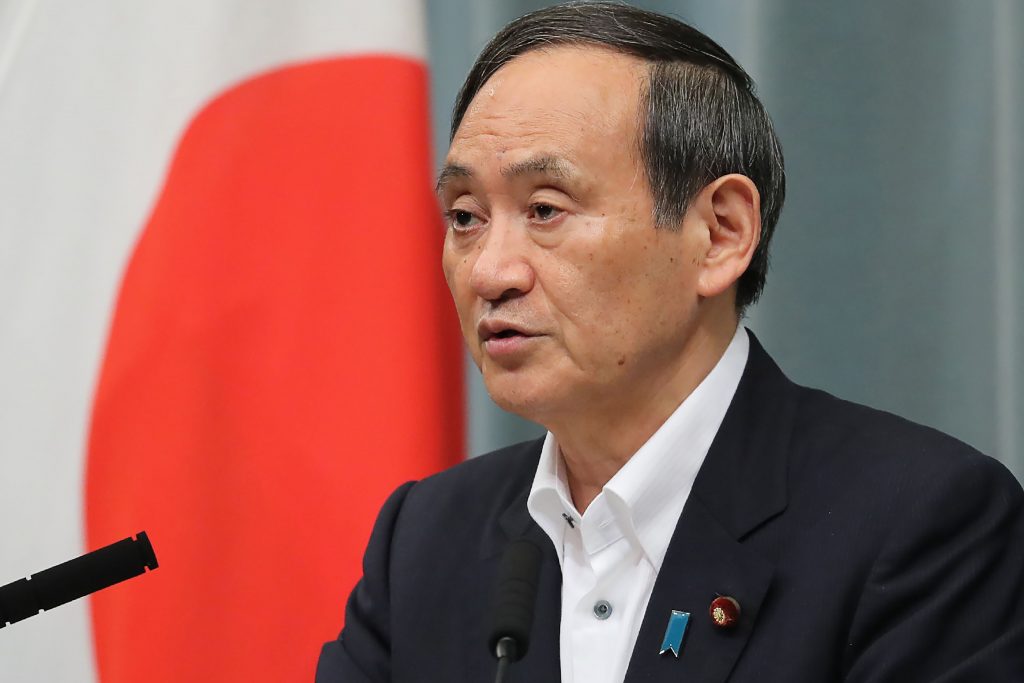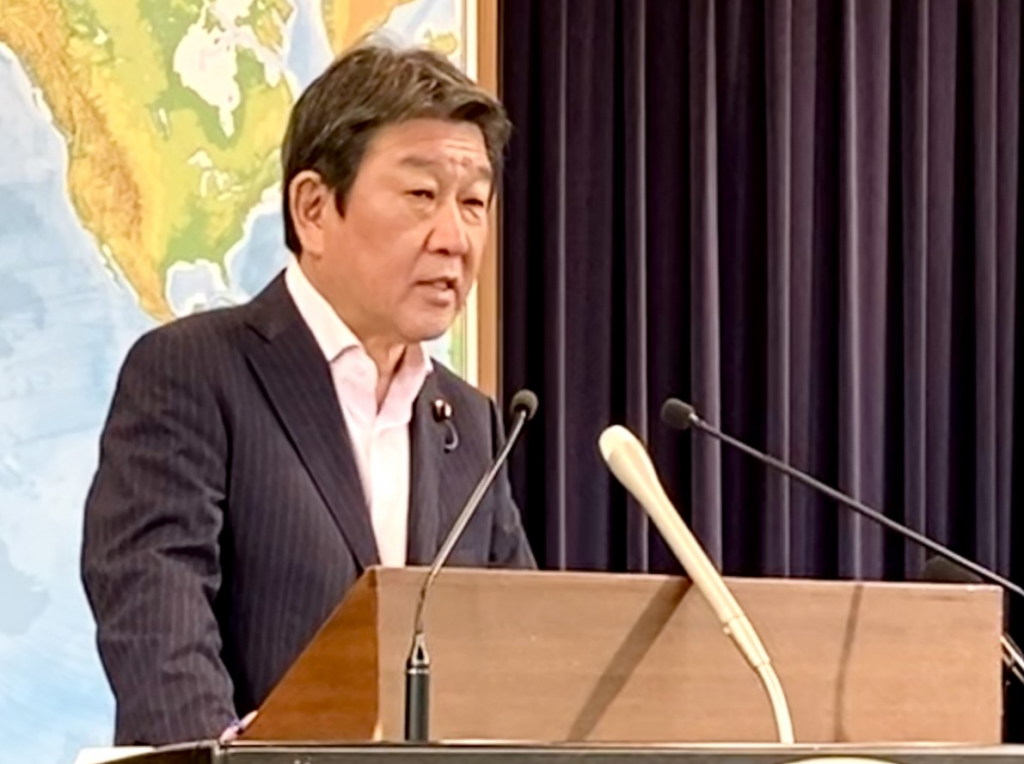



Arab News Japan
TOKYO: Japanese Prime Minister SUGA Yoshihide stressed that his government will strategically promote a “Free and Open Indo-Pacific (FOIP)” and along with his Foreign Minister Motegi Toshimitsu warned of the dangers of expansionism, with the message clearly aimed at China and Myanmar.
Speaking at the 2nd Tokyo Global Dialogue organized by the Japan Institute of International Affairs (JIIA) on Thursday, Suga delivered opening remarks saying the situation in the Indo-Pacific is becoming increasingly uncertain and the security environment even more severe, and “as military capability expansion lacks in transparency and unilateral attempts to change the status quo by force or coercion have continued.”
“We must bring together wisdom from around the globe so that we can resolve difficult challenges one by one,” Suga said.
The theme of the meeting was “The Indo-Pacific of Today and Tomorrow: Transformation of the Strategic Landscape and International Response”. Participating countries included Japan, the United States, China, the United Kingdom, Indonesia, India, Italy, France, Russia, the Philippines, Canada, Singapore, Germany, Turkey, Israel, Iran, the Republic of Korea, Australia and Vietnam, as well as Taiwan.
Following Suga’s message, Foreign Minister Motegi delivered a keynote speech on “Japan’s Foreign Policy towards the Post-COVID-19 World.” He emphasized that it is part of the mission of Japan’s foreign policy to harness the philosophy of FOIP into tangible outcomes and geographically expand support for it as the foundation of a post-COVID-19 international order.
Motegi pointed out that the recovery of the world economy would be crucial to building a post-COVID-19 global order. He stated that Japan is determined to rev up the two engines of green and digital economies to lead global economic growth.
“Japan is determined to take the lead in building a post-COVID-19 global order,” he said. But he, too, had a blunt message for those who do not want to cooperate with democratic freedoms.
He was clear where his concerns lie: “While the COVID-19 crisis has emerged as a game changer out of the blue, we are also facing the rise of another game changer that has become increasingly conspicuous over a longer period of time: China. At the first Dialogue, I emphasized that, in an increasingly unstable and unpredictable world, we should seek solutions on the firm basis of international rules instead of asserting one’s own interests by resorting to force.”
“If an emerging power behaves in accordance with internationally established rules and cooperates in building a new international order, the post-COVID-19 world will be able to regain stability. In reality, however, we have long been witnessing attempts by one party to coerce others into accepting one’s self-declared positions and alter international norms in accordance with its own principles by changing the status quo in a manner inconsistent with international law and by accumulating fait accompli. Such behavior is driven not by the common interests of mankind but by that party’s pursuit of its own perceived benefit.”
“The vision of FOIP consists of three elements: first, the promotion of the fundamental principles of the international community such as the rule of law, freedom of navigation, and free trade; second, the pursuit of economic prosperity through the enhancement of connectivity including through quality infrastructure development consistent with international standards; and third, the commitment to peace and stability in fields such as capacity building for maritime law enforcement, disaster risk reduction, and nuclear non-proliferation.”
Motegi praised the administration of new US President Joe Biden for its “strong commitment to the achievement of a Free and Open Indo-Pacific.” The Foreign Minister also placed emphasis on economic recovery.
“Among the responsibilities we share in building a post-COVID-19 world order, the most crucial is to bring about the recovery of the world economy that tanked due to the pandemic,” he said before again making a reference that could be seen as targeting China: “In the midst of this crisis, we have also come to realize the danger of depending on a specific supply chain. There will be no problem as long as we stand firm on free trade and seek to add layers to existing supply chains to avoid such a risk.”